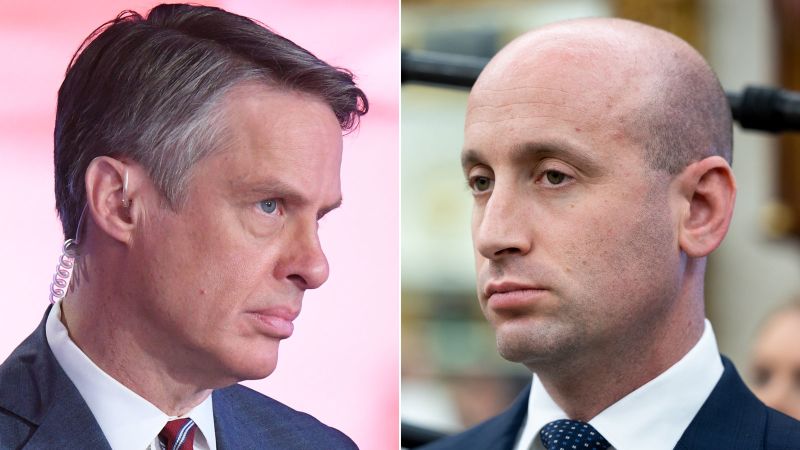On a recent Sunday, the media world was shaken by the news of veteran ABC News correspondent Terry Moran’s suspension after he posted a caustic critique of President Donald Trump and his deputy chief of staff, Stephen Miller, on the social media platform X, formerly known as Twitter. This incident raises significant questions about the boundaries of journalistic expression in the highly polarized political climate of the United States.
Moran’s commentary, which was shared shortly after midnight, branded both Trump and Miller as “world-class haters.” In his analysis, he articulated that Trump’s motivation for harboring hatred is self-serving, suggesting that it is merely a conduit for his own self-glorification, describing it as “his spiritual nourishment.” Conversely, Moran accused Miller of deriving sustenance from hatred itself, literally stating, “He eats his hate.” Such language illustrates the intensity of Moran’s feelings regarding these political figures and suggests a level of disdain that is rarely expressed so openly by journalists of his standing.
Despite his prior distinction—Moran had conducted a rare Oval Office interview with Trump in April—the fallout from the tweet was rapid. Moran deleted the post shortly after publishing it and did not engage further on the platform. The incident drew vocal condemnation from Trump administration officials, who contended that Moran’s remarks were a reflection of poorly on ABC News itself, urging the network to take action against him. White House Press Secretary Karoline Leavitt publicly called for accountability from ABC News, prompting inquiries regarding the network’s response to Moran’s statements.
Leavitt’s frustration was palpable; she expressed hope during an interview on Fox News that Moran would face severe repercussions, specifying either suspension or termination as appropriate consequences for his actions. She claimed to have had discussions with ABC, indicating that the network acknowledged the severity of the situation and planned to take measures, hinting at some level of internal discourse that was not fully disclosed to the public.
About an hour after the mounting pressure from the White House, ABC News confirmed the suspension of Moran, who is not only a senior national correspondent but also a former anchor of “Nightline.” In response to inquiries from CNN regarding the incident, an ABC News spokesperson stated, “ABC News stands for objectivity and impartiality in its news coverage and does not condone subjective personal attacks on others.” The spokesperson emphasized that Moran’s post did not align with the network’s values and violated its standards, leading to the suspension pending further evaluation.
Stephen Miller, often labeled the mastermind behind Trump’s controversial immigration policies, has been subjected to intense scrutiny and criticism over his career, particularly as highlighted by the pejorative “hater” applied by Moran. A book published in 2020 titled “Hatemonger” detailed Miller’s connections to far-right groups that demonize immigrants, further cementing the negative perceptions surrounding him.
Though Moran’s accusations against Miller may not be unfounded within the context of public opinion, the decision for a seasoned correspondent to engage in overtly political commentary on social media, especially at an unconventional hour, is strikingly atypical in the realm of journalism. A backlash from Miller himself followed Moran’s remarks, with him asserting that the incident revealed deeper flaws within the corporate media landscape, stating, “Terry pulled off his mask,” suggesting that journalists like Moran disguise their true political inclinations behind a facade of neutrality.
Moreover, in a related commentary, Vice President JD Vance took to X to express his support for Miller, stating that Miller is driven by a “love of country” and called on ABC to issue a formal apology, amplifying the already heightened tensions between political figures and the media.
This incident surrounding Terry Moran serves as a potent reminder of the complex interplay between journalism, social media, and political expression in today’s society, as well as the potential ramifications for those who stray from the expected norms of impartiality and professionalism.



